Post Malone’s Manager, Dre London: Exclusive SmartistU Interview
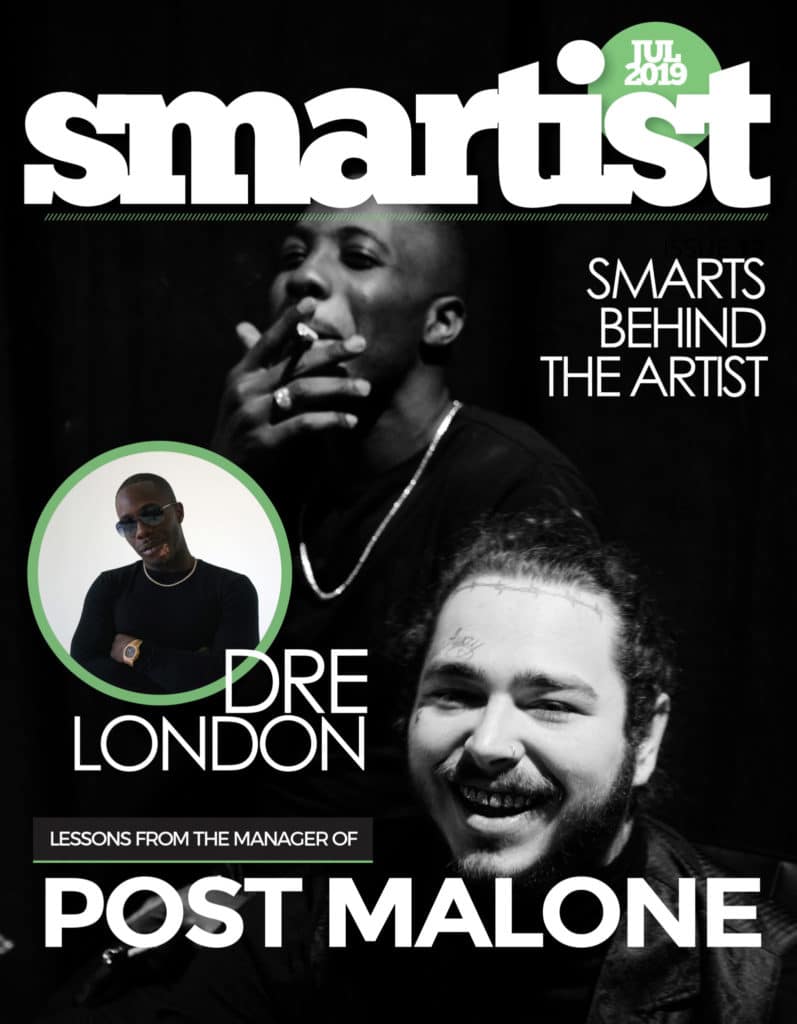
In this edition of Smartist Magazine: Smarts Behind The Artist, we hear from Dre London, manager of Post Malone, Tyla Yaweh, Dzeko, Tank God, and other hip hop music game changers. Dre got his start in management nearly 15 years ago, when he moved from the UK to New York City with his first artist and childhood friend, Cerose. After meeting some established rappers of the time, and having some success working with Billboard chart-topping artist French Montana, Dre met Post Malone at a friends’ GRAMMY after party.
Dre has worked with Post for the past 5 years, helping him rise from 600 followers to a GRAMMY Winning, triple platinum-selling global superstar. Still one of the most down to earth guys, Dre gives us some entertaining and exclusive insight into his career as a manager to date.
In this interview, we discuss:
- How the start of his management journey took him from the UK to NYC, working with French Montana
- The industry becoming less gatekeeper driven, and more fan driven; and falling back in love with the business
- Realizing he had what it took to impact culture after some success with French Montana, and then meeting Post Malone
- His negotiation phase with Post versus his negotiation phase with artists now
- How he pushes artists to find themselves, without them realizing it
- How finding a manager is all about timing, energy, and common sense
- Being harassed on Instagram and email – and how artists should be be hungry, not thirsty
- Growing a shoe brand at the same time as developing a superstar, and concentrating on one first
- Cleaning the slate when he signs a new artist
- Letting the song do all the work
- His original marketing plans and his favourite role as a manager
- His biggest lessons and advice for new managers
And much more…
What was your first music industry gig?
A lot of people don’t know but I used to be a DJ. I’d DJ at barbecues, birthdays, I was just always finding a reason to DJ. And I used to buy records, I remember on a Saturday going with my Mom to buy records, and it started from that. Then going to buy turntables. I remember I wanted an SL12 or something, because you could rewind them forever and it wouldn’t mess up the belt, if that makes sense. So, I used to scratch and try and mix with them. So, that’s when I’d probably say that I first fell for the love of music and grew to music.
Then music management wise, I think it was, let me see — might have been 2007 or 2006 I discovered my first artist called Cerose. I didn’t discover him; I grew up with him, I knew him. I remember him doing this mixtape — back in the day it used to be DVD’s and stuff — and I remember him doing some freestyling on a DVD and I was like “yo, I could get this guy forever, I know how big he should be.” And it kind of started from there. That’s when it took me on a journey to America, because at the time there wasn’t much of a UK rap scene. It was mostly grime and garage back then, it wasn’t as big as the hip hop scene is right now over there in the UK. So, I took him to New York on the quest to try and make him big.
As his manager?
Yeah as his manager. You know, I wasn’t even thinking of it or calling it a manager, I was looking at it as a business partner. So, I took him as a business partner over there [New York], and that’s when I met rappers like Jadakiss and French Montana, and the more established rappers of the time. That’s when I discovered all of them, around that time. He [Cerose] had a couple of features, a couple of mixtapes. I went from learning in general, a lot of ups and downs, mistakes then. I would say that taught me forever on how to grow, in a certain way, if that makes sense.
From your first artist, was your next artist Post Malone?
Yes. It wasn’t straight away because I was also working on records for French Montana, and I was helping in the background on management with French Montana, with Gaby at the time, back in the day when French Montana had first started. I would help and see a lot of the stuff on the road, and the East Coast hustle — in Connecticut, and Boston, and even New York and going to surrounding cities and States, and just really learned to hustle from that. Then after that is when I found Post, yes.
Because I kind of fell out of love with the business. You love the music but hate the business. I just had to figure out how to get it right.
Do you like the business more now?
It’s still crazy, but I like it more now because it’s got more independence. Back in the day it seemed like there was too many gatekeepers if that makes sense. Now, it’s what the kids want. It is more fan driven now, rather than what’s being fed, if that makes sense.
Now even though you’ve got a lot more music out there that isn’t up to certain standards, it’s more defined by the kids with the rise of social media and everything happening so instantaneous now. They always did before but before it felt like record labels shoved it down your throat more. Now, record labels are running and chasing. You know what I mean? Record labels are chasing.
What they think is hot. Whereas before they could try and make something hot, but it’s not possible anymore. No one wants that. You can tell when something is generated, and what’s the word – manufactured – you can tell when it’s manufactured.
When you started working with French Montana, did you meet him through “the kids” or through industry gatekeepers?
I met him through one or two industry guys. I met him and got his number and then called him and just started telling him about my plans, and he just said “alright, I must come and talk to him.” I remember I met him and his boy, and he took me to him, and the rest is history. Well not history like that but over a period of time, it blew up. It was crazy… I think Kanye West had a concert back in the day, and I took him to the show, and it was after that we became closer. It was a Kanye show, I don’t remember which one, one of his tours back in the day in New York, and from that day onward we started getting closer. I started working, I started giving him advice about pushing his career further.
Before he got big?
Yeah this was at the beginning of his career, before a lot of people knew him. Then I introduced him to a producer where he got his first radio record from. So when I started seeing all this stuff, I knew that I had the ear to impact the culture, if that makes sense, because I’m sitting from behind — this guy in London that no one knows — and I put all these things together for “Shot Caller” and all these other records that French did, and that’s when I said, “yo, I can do this”.
It was after that, and after a period of time of falling in and out of love with the business, that’s when I started going back and forth to LA. I went to the GRAMMY’s just to see what it was like, and afterwards someone brought me to a house, and that’s where I met Post. That was 2014. There were other people in the house, but I just knew he had something special. When you know, you know.
Tell us about your dating phase with Post, your negotiations phase.
[laughs] That’s so funny you’re calling it the dating phase. Yeah… it was a long date! It wasn’t a short dating phase. I think it was around April 2014, to like, at least 5 months of me telling him I wanted to manage him before he made the decision and said, “alright, you’re my manager.”
I remember him telling me all nonchalant, like just walking in from the car that night, and just coming in the house like, “ok so you’re my manager” — and I’m like, “oh, thanks” [laughs].
What do you think you said that finally got him to say yes?
I think he saw the passion. That I had the hustle to pull things off. This guy’s a hustler. And I stayed on it too. Very, very hard.
You’ve signed a bunch of new artists now — did you go through a dating or negotiations phase with them as well, or is it much different now?
Kind of the same, but the dating phase is a lot more short when you become well known, and this is your work. Even now after receiving a “Manager of the Year Award” [Variety & Billboard], that makes things a lot easier. People are like “ok this person is hard working.” You know?
And number 55 most powerful person in music [Billboard Power 100]. I couldn’t have dreamed that before. That was like one of my dreams to even get into the powerful 100. I remember I used to be in the UK before I even moved to America, looking at that like, “wooow”.
So, it’s become a little bit easier.
But it’s never easy because you have to understand — they put so much trust in you, it’s their life. So, it’s never easy to ever persuade someone or to tell them that you’re the person to take care of their life. It’s a big responsibility.
That must have felt amazing.
Yeah, it was like a dream come true.
When you’ve got that under your belt it’s pretty easy to sign new artists.
Uh huh. Definitely. But now I’m not looking to sign any new artists. It has to make so much sense. I look at it like it’s both our careers. I can’t mess up my career — my legacy — by going for an artist that doesn’t want it as much as I do.
Download our free artist management start-up kit!
Is that the biggest thing that you look for, drive?
Uh huh. Talent, drive, passion. If they have all of that, they can learn the rest. There’s stuff they can learn to get better. My method of management is different. I like to teach an artist when they don’t even know they’re being taught. They don’t even know they’re getting better. Just keeping them, what’s the word — just keep pushing them and pushing them when they are vulnerable, and before they know it they find themselves, finding themselves. If that makes sense.
But I’m never looking. I just feel it, when I feel it. I don’t go around just saying, “hey, I’m looking for a new artist.” I do think about the female aspects of it. If there’s a female artist right now, and she was killin’ the game and she had what it takes.
There are not really many superstars now. Everyone has their own communities, their own followers, like they didn’t before. People look over their fence next door, your neighbour, kind of thing. You get what I mean? You look next door at your neighbour like “hey what’s going on over there, how come I don’t know about that?”
Do artists reach out to you all the time?
Yes. Every way possible.
What’s the worst thing that people do that totally ruin their chances?
Get my email from someone and repeatedly send — like repeatedly, try to throw it in my face. It’s all about timing, energy, common sense. Like you’ve got to have all of those.
Or someone like tapping my Instagram saying “hey hey!” — but then don’t get me wrong sometimes it works! Get me at the right time, and I might click it, and I might have a look. But generally, someone will know how to get my attention, and they’ll get my attention from someone around me or someone close to me. That’s the best way to get my attention. Don’t come straight at me to tell me about your talent. Go around, like let someone else tell me that’s close to me, like, “yo you should have a listen to this it’s actually good.” I’ll listen a bit more than if it’s just thrown at me.
Don’t get me wrong though, you have to take your best shot. I understand.
I guess there’s a difference between a best shot and harassing.
Yeah. Be hungry, not thirsty.
When did you become a full-time manager?
It feels like since I left the UK and came to America, that I became full-time. But like not having any other job, like I had a business and stuff that I run, but I’d definitely say 2015 was the time when I was like OK. Because I have a woman’s shoe line [Kruel London] and Post asked me about it, “why you wanna have a shoe line?” and I said to him, “hahaha, you.” He says, “what does that mean?” I said, “bro I tried to give it to you it wasn’t possible”.
Breaking an artist’s career and trying to grow him to be one of the biggest artists in the world, which he is today. Doing that, while trying to make a brand the biggest thing in the world, a product — the two don’t always work at the same time. So, I had to concentrate on that first, and now I’m able to have time where I can work on other stuff like that. Not too much time, because I’m telling you management takes up everything. Everything. One click in the day, like you can get a phone call, and everything changes. Your whole day.
Do you have a team helping you?
Yeah, I have a team. Before it used to be just me on my own, but now I have a team. Bobby Greenleaf, Jay Santiago, Christina my assistant. I have a whole team of seven to eight immediate, and then another team outside of that. I call it the A Team and the B Team.
Like Internal and External. Agent vs. internal Management Team.
Exactly.
What’s the first thing you generally like to do when you sign a new artist?
When I first sign a new artist, I generally like to go back and look at what they’ve done, hope and pray they haven’t put out too much, try to clean it up, try to clean up their image. Try to just see where I’m going and put across my experience, and what I see, and if they like it. Generally, just cleaning the slate, and have a look at every single thing they have going on, and what kind of content they’ve ever put out before. Hopefully not too much because with a new artist, I like to be able to generate it myself.
But it doesn’t always work like that — like with Tyla Yaweh, he had many songs out before and I had to pull them off the Internet, and clean up the whole image, and take a look at the Instagram and socials to see what the numbers are like. I really just look at overall, everything, and start putting out the message of how I see it.
It sounds like you start with them when they’re brand new. You really like the artist development side.
Yeah I do, but don’t get me wrong, I’d also take on an artist that’s already out there. That’s already big, or already had some form of a career. But I’d have to be able to look and know, ‘where am I going to be’. Like add my touch, and people are going to notice it. Like, “oh this guy’s career, it kind of took off, dah dah dah dah” if that makes sense.
When you started working with Post, he wasn’t well known yet.
When I started working with Post, he had 600 followers.
What do you think really started to get traction for you guys?
What really started to get traction was when we put out “White Iverson”. And behind that, I remember in the beginning he was asking me, “why do we have to do these pictures”, and why I had to ask him all these questions – like when I was doing his bio [laughs] he wanted to know why. “Why can’t I just put out music why do I have to know all this stuff?”. “Because when it’s out people want to know, who is this guy?”. It needs to be all ready. He’s like, “what?”. I’m Like, “EPK”, he’s like, “what?”
So it was really just the song I guess.
What about the marketing strategy?
It was definitely the song, but then the marketing strategy after was – I wanted people to discover him. So, I didn’t put his face all over the place. It was just the song. And when you discovered the song you discovered who it was. Then it would drive you to go and find out what he looked like. When you went to see what he looked like, I was in the streets. I was hustling so hard. Every single person that we would meet I’d have them take a picture with him, so by the time you went to see his social you were like, “oh, he’s with Jeremy Scott”, “oh, he’s with this person” – so at the same time I remember waiting like 10-15 minutes he wanted to leave, and I was waiting to get him in a picture with Jeremy Scott, I told him just give me 5 more minutes, because I would literally walk up to someone and say, “hey this is my artist Post Malone, nice to meet you blah blah blah blah, yo can I get a pic?”, CLICK, next. At this time these guys didn’t really know who he was [laughs] but they knew he was at the right party if that makes sense.
Ryan Fionda: And the picture with him and Drake when you had the DJ playing White Iverson
Yes exactly the same thing, the picture with him and Drake. We’re backstage at Coachella, Drake just came off the stage, and he said, “is that White Iverson?” and I turn around [to Post] and I was like, “yo! Go say wuddup” and the DJ started playing White Iverson backstage while we were there, and we got pictures.
It was just a whole load of a snowball effect of the two. Music and the branding & marketing at the same time?
Did he have a label at that time that was helping with branding & marketing or was that just you?
Oh no, that was just me.
Would you say branding & marketing is one of your favourite things to do?
Mmmmm. Yeah? You definitely could say that. You could say that.
Management in general, what’s your favourite role?
I guess you could say the development process. My favourite role is also seeing records leave from nothing, just an idea, to taking over the world. That’s also one of my favourite processes. I’m trying to think if there’s just one — it’s a whole load of different things.
Managers wear a million hats.
Oh my god. A lot. You’re basically running someone’s life and business. Every day. No day off. No Sunday’s at church.
Yeah. Not just their business, their life.
Yeah, trust me. Everything. You name it.
How long have you gone without talking to Post, since you’ve started working together?
Sometimes you have to take a day or two off. So, I don’t know, the longest… 2 days?
And you started working with him in 2014. We say it’s like a marriage, you talk to that person all day every day.
Yes. Yes. Yes. Every day.
Looking back at this journey, since 2014 — it’s been almost 5 years now — what do you think your biggest lesson has been so far?
Wow. My biggest lesson so far. My biggest lesson is, probably, don’t leave your talent in anyone else’s hands thinking that someone else is going to do the work for you. Because they ain’t. Do you get what I mean?
Does that include Team A and Team B?
Yeah. I mean…
Yup. It has to be everybody hands on deck. If you’re not making it urgent, how’s anyone else going to make it urgent? Including the artist. The biggest thing is trust. Once the two of you have this trust, no one can take it away from you. And I think the world starts to see it too.
What do you think develops trust? Super open communication?
Yes. Very. Very. Very. I tell him the stuff I’m doing. He’ll tell me different ideas and different stuff, it’s a very, very open relationship.
Including difficult conversations.
Uh huh. Sometimes you have to have the most difficult conversations ever that you don’t want to have.
One more question. Do you have any ‘DO NOT EVER DO THIS’ kind of advice, for new managers?
[Laughs] Do I have a do not ever do this advice. Hmm. Do not ever try to be your artist.
[Laughs] Yeah dude. Do not ever try to be your artist. Exactly what Ryan [Fionda] said, you scroll Instagram now and you don’t know who’s the manager or who’s the artist. Do not try to be your artist. Find your own management style that works. Don’t copy anyone else’s. What works for him doesn’t mean it’s good for you. Not anyone can sell entertainment.
Big thanks to Dre.
Whose business do you want to know more about? Tell us at support@smartistu.com or check out more interviews here.
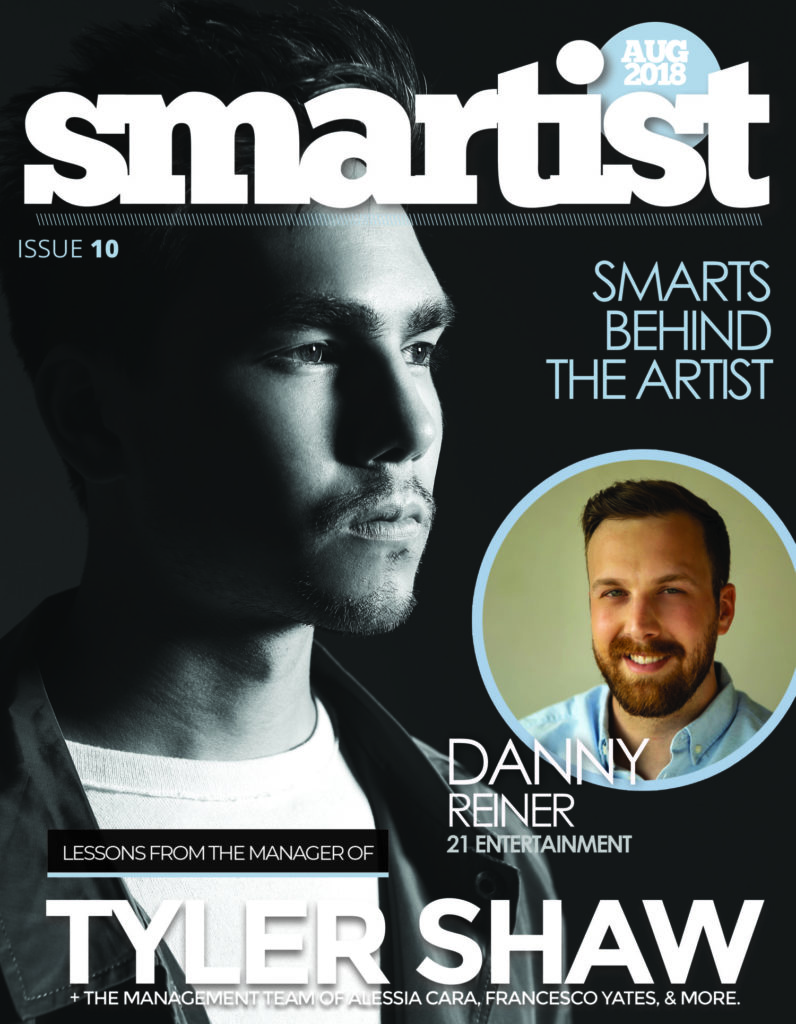
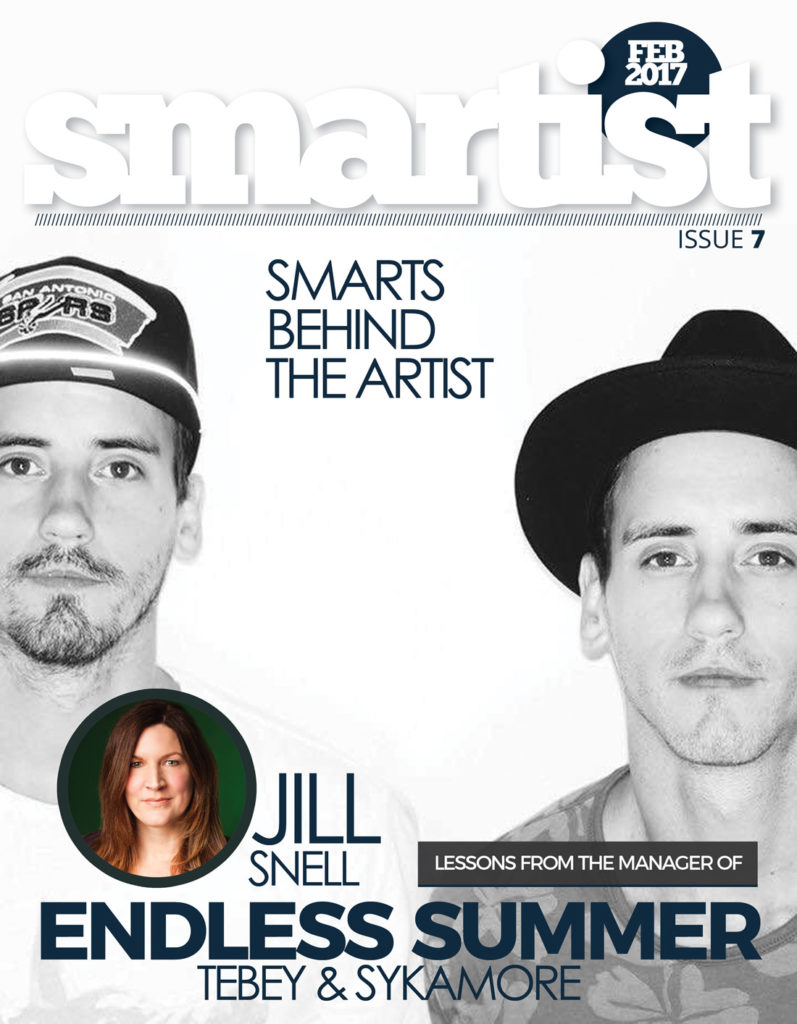
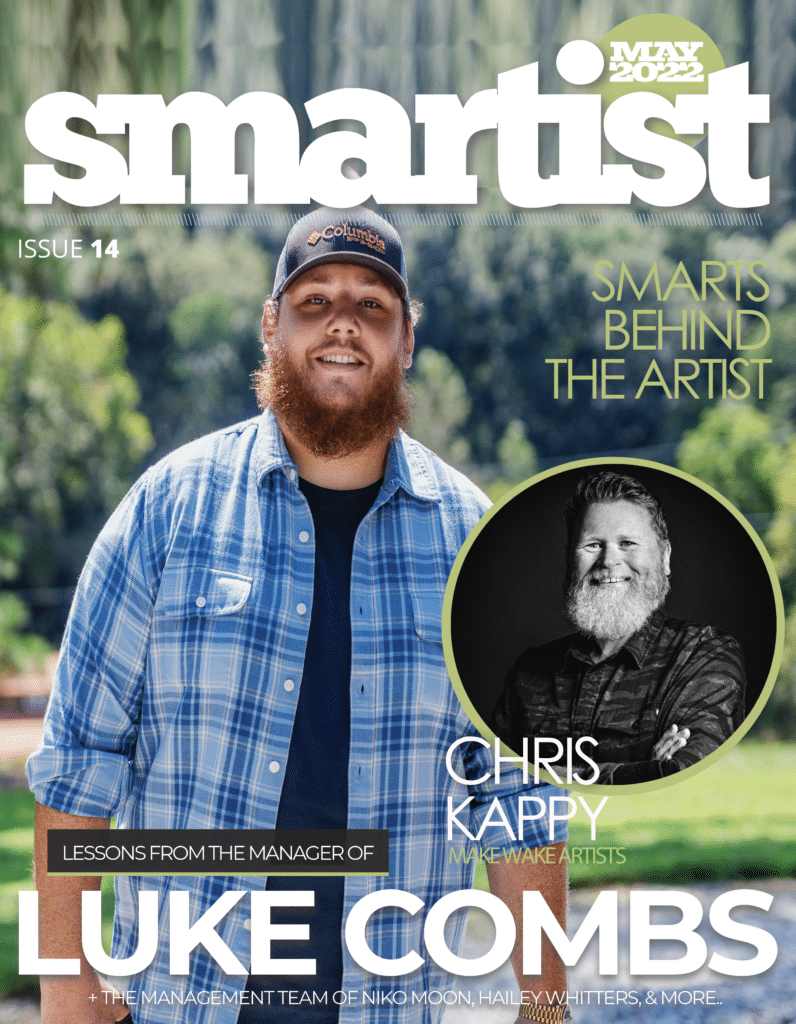
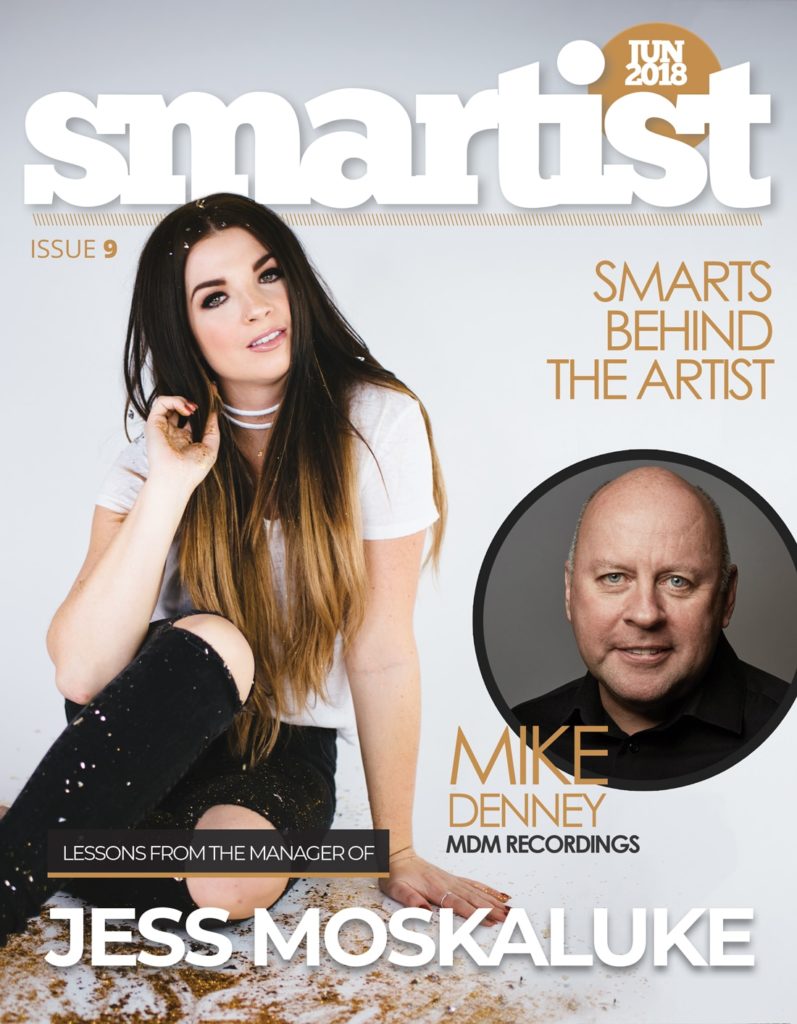
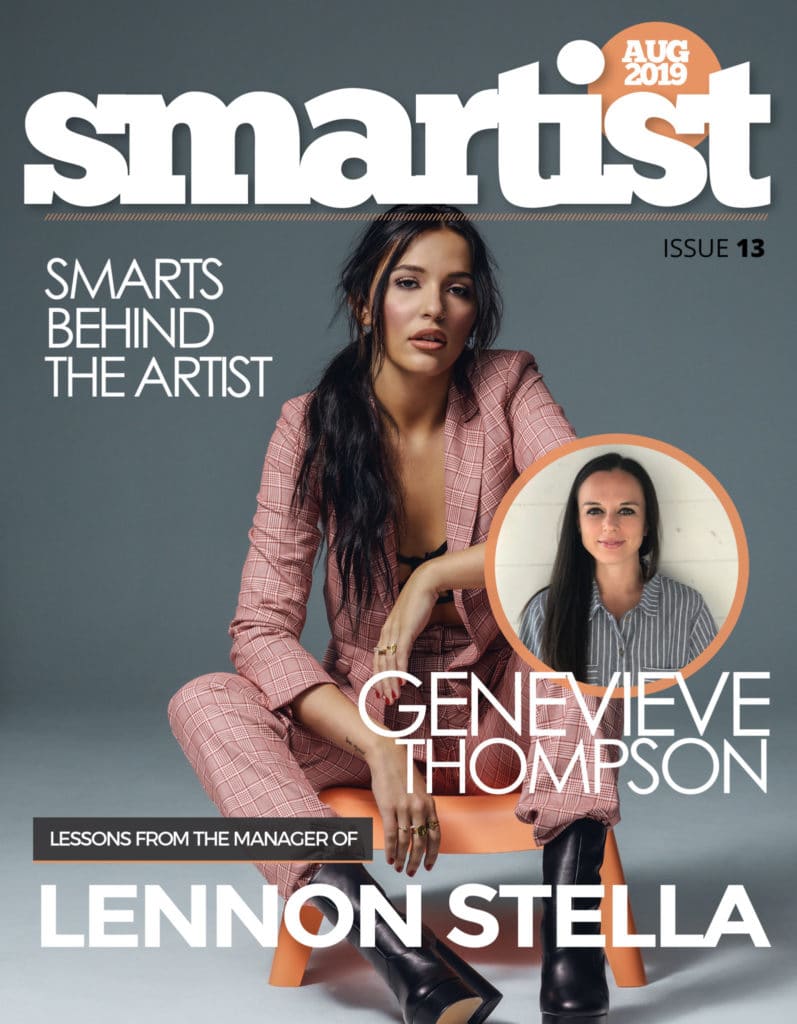
Responses